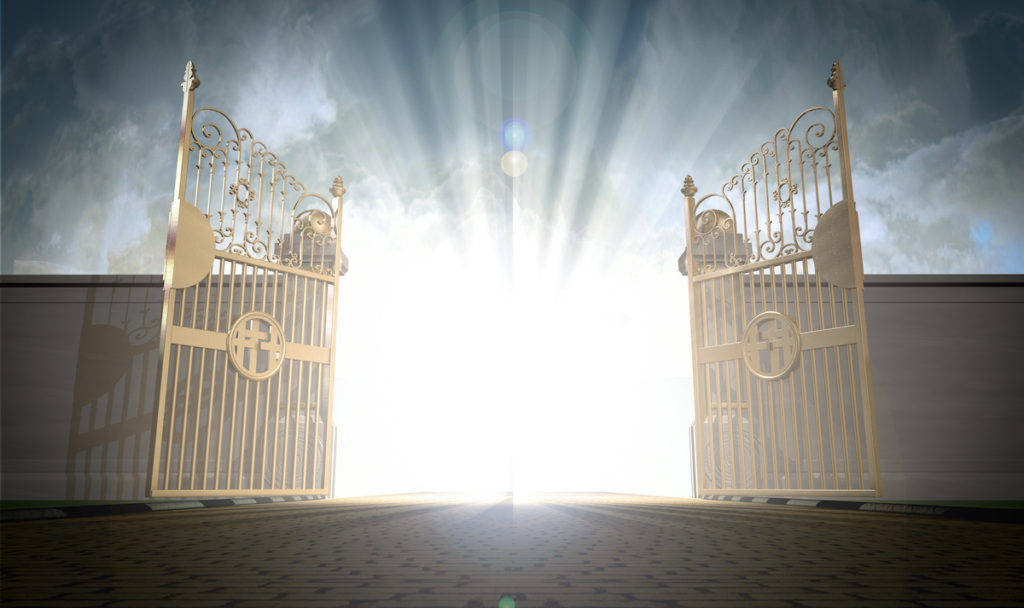
In a recent comment on this blog, Sonja writes:
Romans 2:14-16 Paul is indicating here that Gentiles who do not have Torah, and Yeshua is the Living Torah, may be judged according to their conduct in regard to what they knew (their conscience).
Revelation 20:11-15 seems to confirm this, when people are being judged at the second resurrection, according to what they have done.
I find it difficult to fathom that people would be condemned because they never had the opportunity to know about Yeshua.
Sonja, I agree with you on this. Below are my thoughts after decades of study and reflection on this subject.

For this reason the gospel was preached also to those who are dead, that they might be judged according to men in the flesh, but live according to God in the spirit. (1 Peter 4:6)
1 Peter 4:6, Who are dead. (See also Rom 2:12–16; 1 Cor 5:5; Heb 12:23.) This verse seems to indicate that certain categories of dead and unsaved humans will stand before YHVH’s judgment seat (the white throne judgment of Rev 20:11–15), and will be accepted into his eternal kingdom at some basic level. Perhaps if their hearts showed a willing disposition toward YHVH while they lived, but they hadn’t gone all the way in choosing him for one reason or another, or had never heard the gospel message during the physical life, they will be rewarded for the good that they did in their lifetime and will be given an opportunity to accept Yeshua on judgment day.
It is possible that these are the ones that Yeshua declared who would be least in his kingdom (Matt 5:19)? Moreover, was Paul making a reference to these people in Romans 2:12–16 when he talks about those Gentiles who sinned without theTorah- law, and who will be judged based on whether they lived up to the basic law of Elohim written in their consciences? Will these people, who lived according to the basic tenets of the Torah (e.g. not stealing, lying, committing adultery, murdering, coveting, honoring parents, living according to the golden rule and, in their own way, and adhered to a concept of a Supreme Being before whom they walked in fear without worshiping idols) be given an opportunity on judgment day to make their faith complete by accepting Yeshua’s sacrifice for their sins? Possibly so. Perhaps this explanation would help us to understand Hebrews 12:23, which speaks of the spirits of just men made perfect, as well as the salvation of the thief on the cross (Luke 23:43).
With regard to the thief on the cross who professed faith in Yeshua (Luke 23:43), let’s go one step further. Next to this thief was another thief whose heart remained obdurate and unrepentant toward Yeshua. It appears that on Golgatha (or Calvary), we have three categories of people, even as Peter describes three categories of people in 1 Peter 4:18: the righteous, the ungodly and sinners. The first category is self-evident. The second category seems to imply those who lived a decent life, but who never professed faith in Yeshua the Messiah during their physical lives, while the last category were unrepentant and hard-hearted individuals who made no effort to live up to even the most basic standards of right and wrong (often referred to as “the moral law”) that was written in their conscience. This verse seems to describe these three categories of people on earth, which are the same three categories of people who were crucified on Golgatha: Yeshua the righteous, the repentant and ungodly thief, and the unrepentant second sinful thief.
With regard to those who never came to faith in the God of the Bible, different biblical-based religions treat these “morally good” but unsaved folks differently by pronouncing different fates on them. For example…
- The Roman Catholic Church deals with these folks by consigning them to a non-biblical purgatory where, apparently, they can work out their salvation.
- Rabbinic Judaism consigns these folks to the so-called Book of the Undecided as opposed to the Book of Life and the Book of the Dead. What happens to those in the middle book, is not clear in my mind, but I assume that they get a second chance.
- The Protestants consign everyone to everlasting torture in hellfire who never accepted Yeshua while alive physically. There is no second chance for them.
- Armstrongism (a small side branch of Protestantism) had these folks resurrected at the end of the Millennium where they were given “a hundred year period” to come to faith.
- My theory, on the other hand, proposes a middle of the road approach where the wholly wicked will be destroyed in the lake of fire, while those who lived faithfully according to whatever light of spiritual truth they had will eventually be given an opportunity to accept Yeshua. This seems to square with Paul’s statements in Romans 2:12–16 and the view of YHVH’s Elohim as being a more merciful and just Being.


Three crosses, 3 tavs, 666
Carol, I don’t understand what you are trying to say. Can you please expand.
Blessings, John
Rome! It’s been speculated that the beast will be Roman.
Shalom. The 666 is incorrect. It can’t be these numbers by Hebrew standards. The Aramaic proves this too. There are many teachings available to this regard. One being by Rico Cortez.
With all due respect, simply making a statement why you disagree is not helpful to our discussion of the subject. Kindly give us Scripture and verse along with the meaning of the biblical words and contexts in which a biblical word or concept is found. Simply throwing out a name of someone who teaching differently on a subject is not helpful either. There are many well known personalities the world over who are wrong on many subjects. Name dropping means nothing to the discerning truth seeker. We want to know what the Bible has to say on the subject. If you are going to reference the teaching of someone else on a subject, please briefly summarize what their main thesis. (It is against the rules of this blog to provide links to their websites or to quote long excerpts from articles they have written without prior approval of this blog’s owners and moderator, which is me. Thank you for our respect in this matter.) Blessings.
Thanks Carol, I get your point now.
Blessings, John
Also check out Micah 7:12 about Assyria, my point being the beast system may not be only Roman. Blessings to you and Sonja, Carol!
Natan,
In relation to the 100 years (the Armstrong theory) which I think they extracted from Yesha’yahu 65:17-25 how do you explain these verses about the people who die less than a hundred years old? It seems to be the time of the new earth and new heavens.
Shalom, John
I don’t have any definitive revelation on this. I can only speculate like everyone else on what this means.
Amen,I agree with you Natan here ,this verse has been a revelation of the Lord’s grace and mercy to me. I feel led to also say to the others continue reading…
Rom 2:25 For circumcision is valuable if you observe the Law, but if you break the Law, your having been circumcised has no more value than if you were uncircumcised.
Rom 2:26 So if a man who is uncircumcised keeps the requirements of the Law, his uncircumcision will be regarded as circumcision, won’t it?
Rom 2:27 The man who is uncircumcised physically but who keeps the Law will condemn you who break the Law, even though you have the written Law and circumcision.
Rom 2:28 For a person is not a Jew because of his appearance, nor is circumcision something just external and physical.
Rom 2:29 No, a person is a Jew inwardly, and circumcision is a matter of the heart, brought about by the Spirit, not by a written law. That person’s praise will come from God, not from people.
Amen